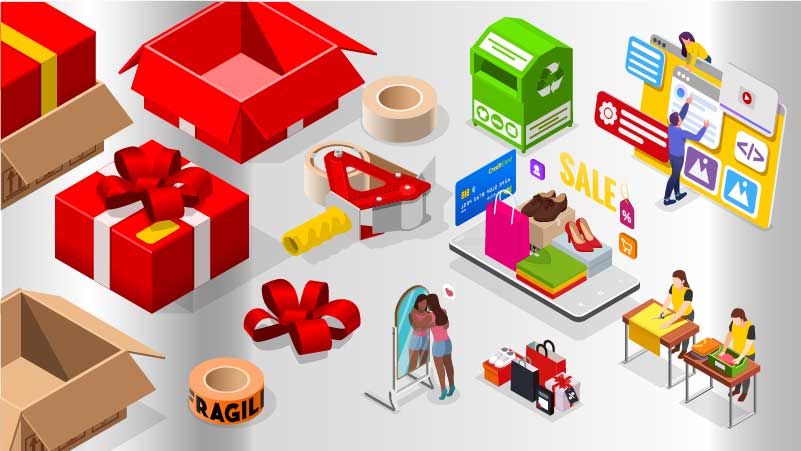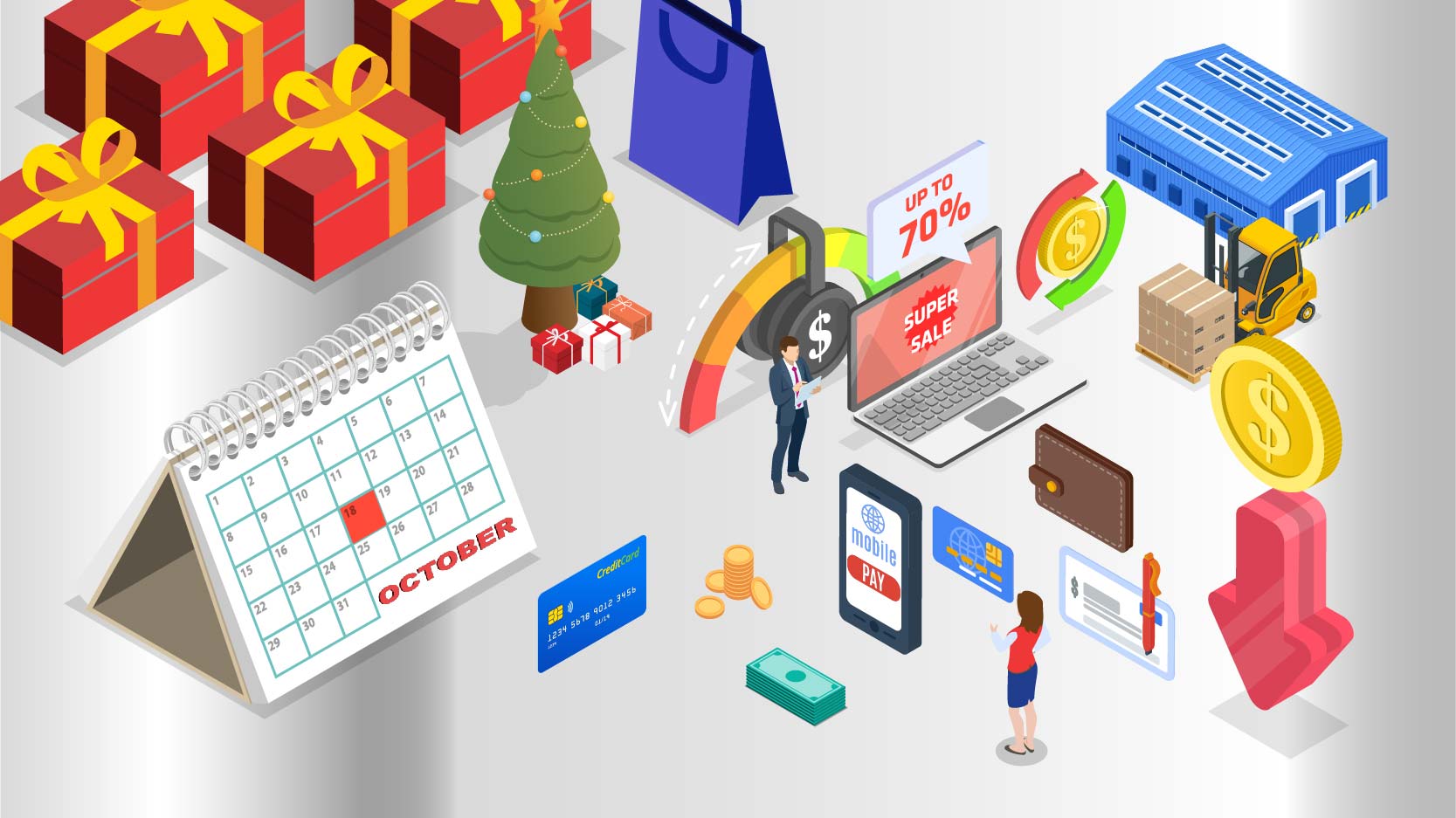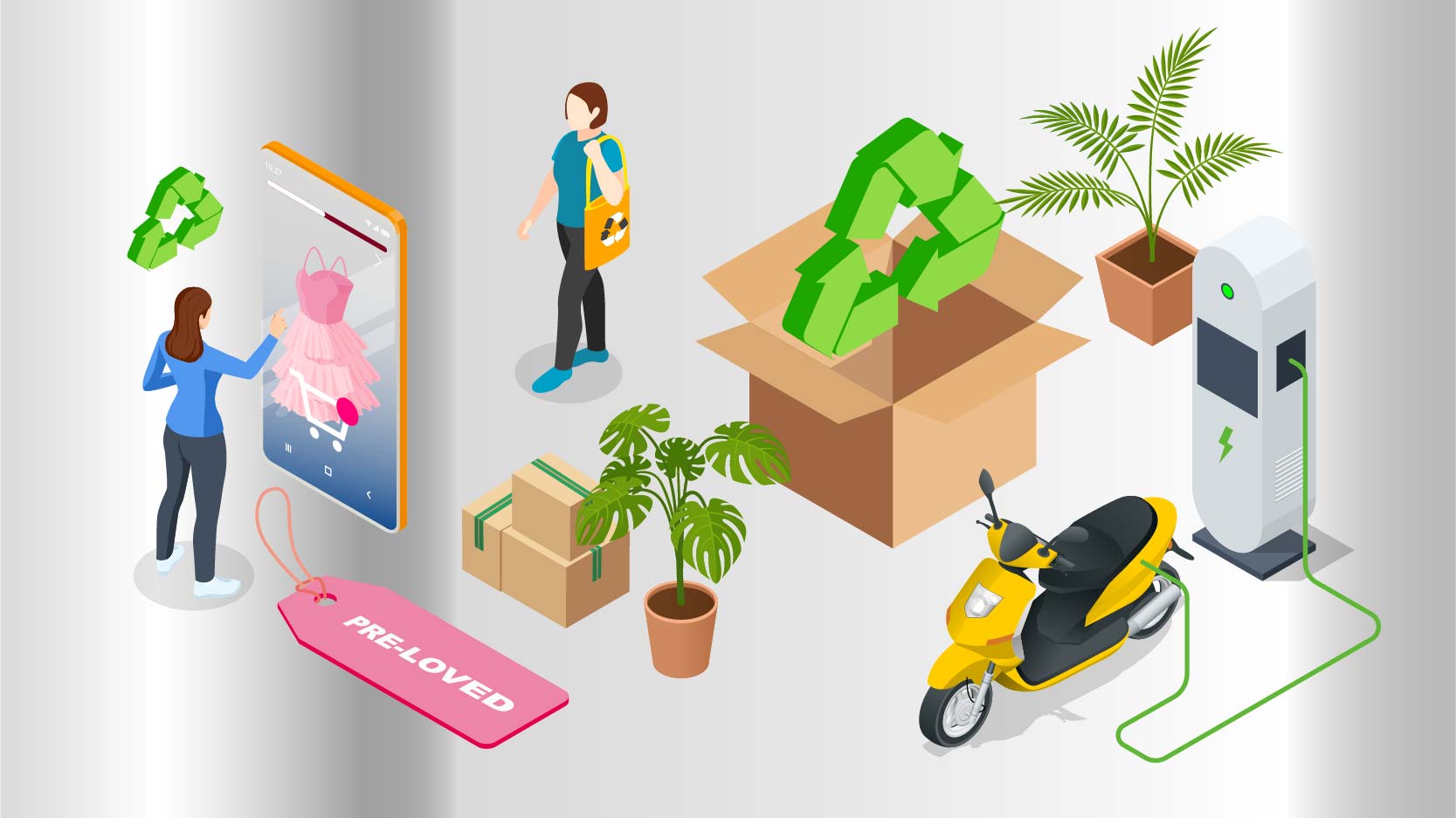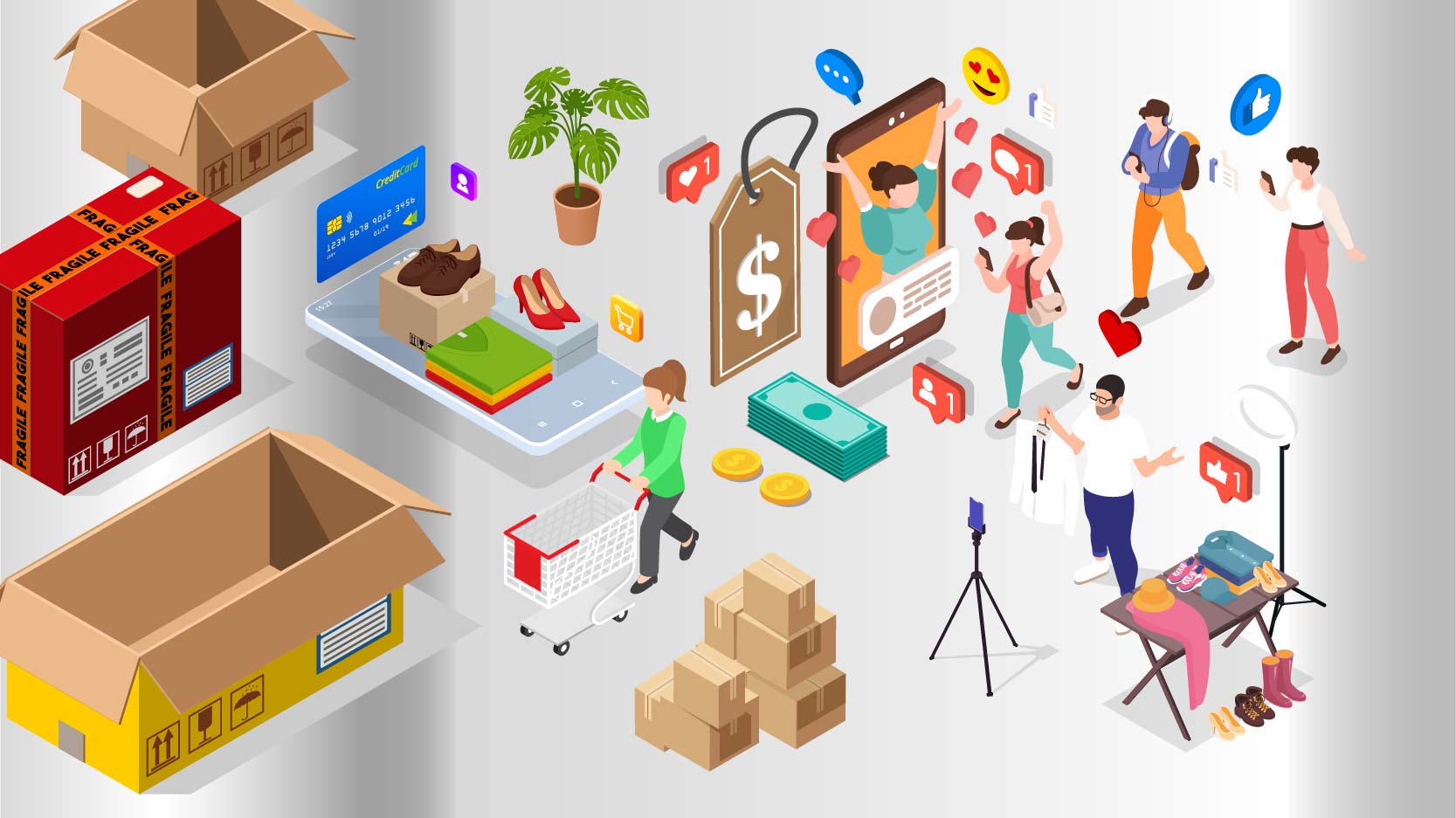Peak season 2023: what your business can expect

With peak season 2023 nearly upon us, and e-commerce more competitive than ever, you need to know which consumer buying behaviors are set to trend this year. The good news is, we’ve done the research for you so that you can adapt your sales and marketing strategies accordingly. Read on for all the tips!
Consumer shopping habits in peak 2023
 1. Consumers’ budgets will shrink
1. Consumers’ budgets will shrink
With global inflation continuing to bite, shoppers are beginning their holiday shopping early to spread the costs out. In a survey of US adults by Jungle Sprout1, 42% of respondents said they intend to start shopping before October. Meanwhile, value for money will be a top priority for many consumers: half of UK shoppers say it will be their main consideration when searching for Christmas presents this year2.
What your business can do
- Now’s the time to review your pricing strategy to ensure it’s competitive. Look at your competitors’ price points – can you match or go lower?
- Be prepared for people taking their time before committing to buy. Provide value and inspiration – such as gift guides – but don’t be too pushy.
- Highlight the quality and unique selling points of your products within the listings so customers know they’re getting something special!
- Do you have some excess inventory lurking in a warehouse somewhere? It’s the perfect time to offer some discounts to help shift it.
- Offer lots of flexible payment options – including a “Buy Now, Pay Later” solution – at checkout, so customers can find one which suits their needs.
- Shoppers will be spending more time on marketplaces where they can easily compare prices. So it's time for you to open your store on the most popular sources.
- Product bundling – offering multiple items together for a reduced price – will be appealing to shoppers looking for value, while giving you an opportunity to upsell.
.jpg) 2. Brand loyalty will wane
2. Brand loyalty will wane
With price now a priority, consumers will become “brand promiscuous”, shopping around for the best deals. For e-commerce businesses already facing rising costs, there’s a dilemma: maintain current pricing but risk customers switching to lower-cost brands, or lower prices in the short term but see profits plummet.
What your business can do
Put the customer experience at the heart of your sales campaign this peak season to keep existing customers and attract new ones:
- Think personalization – whether that’s sending customers personalized gift guides (you can use their browsing history to inform this), emailing loyal customers exclusive holiday discount codes, or little touches like addressing customers by their first name across communications.
- Engage with customers on social media, and respond to questions quickly. Be an active presence – you are your brand’s best salesperson after all!
- Consider adding a subscription model to your business. You’ll need to carefully consider how you can entice customers to sign up – value for money and discounts on your regular prices are big incentives. In turn, you’ll be rewarded with loyal customers and a guaranteed revenue stream. Here’s some tips to get it right.
 3. Free shipping will be a priority
3. Free shipping will be a priority
It’s no secret that online customers love free shipping, and, with people worried about their finances, it will be a high priority this holiday season. In fact, a consumer survey by Gartner3 found that free shipping will be one of the top drivers in influencing a purchasing decision, cited by 45% of respondents (behind only price.)
What your business can do
- Look at where you could absorb the cost of offering free shipping elsewhere – such as incorporating it into your products’ price. On the surface, it may seem a worrying cost for your business to bare, but think of it as an investment that will more than pay off in the extra sales you will generate.
- Alternatively, you could consider a “meet in the middle” solution, whereby you offer free shipping on orders over a certain sales value. This has the added bonus of encouraging customers to spend more.
- Either way, be sure to offer lots of delivery options at checkout so that customers can choose one which suits their budget. For example, 65% of consumers are willing to pay more for expedited shipping4; others would be prepared to wait a little longer as long as it’s free.
 4. Consumers will make greener choices
4. Consumers will make greener choices
Sustainability is a big concern for consumers these days, and the peak period will be no different. Salesforce predicts 17% of gifts this holiday season will be resold items, as shoppers embrace eco-friendly ways to treat their loved ones5.
What your business can do
- Can your brand introduce a “pre-loved” section? This reverse logistics strategy promotes businesses repairing and repurposing their customers’ product returns ready for resale on their website, giving visitors a more environmentally friendly way to shop.
- What are your brand’s eco-credentials? Shout about them on your e-commerce website and integrate them into your marketing communications. Trust us, your customers are paying attention!
- It may be ingrained in you that speed is the name of the game when it comes to delivery, but in DHL’s recent global shopper survey, almost half of respondents said they would be prepared to wait longer for their goods if it would help the environment. Be mindful of this when you’re choosing which delivery options to offer at checkout.
- Discover how DHL's GoGreen Plus solution can help your business reduce the carbon emissions associated with its shipments through the use of Sustainable Aviation Fuel.
- Remember the packaging. If your customer’s small order arrives swathed in layers of excessive packaging, they won’t be impressed – worse still, they might “package shame” your brand on social media! Here are some tips to get it right.
- Dive into DHL’s Green Logistics Toolkit – it’s packed with tips to help your business introduce greener processes. Happier customers, happier planet – and you’ll optimize your business’s output, too!
 5. Shoppers will turn to social media for product discovery
5. Shoppers will turn to social media for product discovery
The online shopping journey has become an increasingly omnichannel experience. 7 in 10 shoppers worldwide now use social media for product inspiration and to discover new brands6. With consumers’ budgets strained this peak season, expect them to spend even more time on such platforms to carefully research and choose the best deals.
What your business can do
- Get creative and create some buzz on your social media accounts – the holiday season is meant to be about fun after all! Offer special discounts and promotions to grab scrollers’ attention.
- Make the path to purchase as seamless as possible for customers – allowing them to buy products from you without leaving the app will increase your conversion rate. Many of the leading platforms now have dedicated e-commerce tools to facilitate this for businesses.
- Consider investing in paid social media ads. Research7 found that in the first quarter of 2023, traffic referrals from social media platforms grew 27% year over year, so it will be a worthwhile investment.
Navigating challenges
To fully prepare for this year’s peak season, it’s also important to be aware of some of the challenges your business may face – and how you can overcome them.
.jpg) 1. Standing out in a crowded market
1. Standing out in a crowded market
You don’t need us to tell you that e-commerce is fiercely competitive. Whatever you’re selling, chances are there are thousands of other businesses out there doing the same – and they’re always just a click away to your prospective customers. To cash in this peak season, you’ll need to find a way to differentiate your offering…
What your business can do
- Personalization is your secret weapon! Consumers shopping online want tailored experiences from brands – in fact, a recent survey found that 66% of people expect businesses to understand (and meet) their unique needs and expectations8.
- To give your customers a personalized service, tap into AI (Artificial Intelligence.) The technology will analyze your data to create customer segments based on the similarities it finds. This means you can develop marketing promotions or devise sales strategies for specific segments, which will increase your conversions.
- With AI, you can create product recommendations based on customers’ exact likes and browsing history. It can enhance chatbots to better understand customer sentient and deliver personalized responses. And it can build website visitors’ profiles based on what they’re searching for and deliver more specific results. These are just a few examples of its potential to transform your business’s user experiences…time to create an AI strategy?
This is a big part of planning for the peak season rush. Overestimate demand and you risk being left with too much inventory; underestimate and you’ll lose valuable sales opportunities – both costly mistakes for your business.
What your business can do
- Again, AI can help here. Inventory management software can tap into your previous sales data to help you forecast demand and automatically order new products from your suppliers when needed. In addition, it can determine the most optimal price for your products based on real-time demand.
- Be flexible with your sales strategy. If something isn’t selling as well as you’d anticipated, be prepared to lower the price to shift it. Remember, the January sales present another opportunity to clear excess inventory, too.
Peak season is the busiest time of year for many e-commerce businesses, and with customer expectations so high, they can’t afford to get anything wrong. For SMEs in particular, it can quickly become overwhelming managing all aspects of logistics and fulfillment.
What your business can do
- Consider outsourcing your logistics to a 3PL (third-party logistics) provider, like DHL. They will manage the receiving, warehousing, packaging and shipping of your products, leaving you to concentrate on the business of selling.
- Remember to be clear on your website about cut off times for pre-Christmas delivery so that customers place their orders in time and aren’t left disappointed.
For more tips to prepare your business for the peak season rush, check out our holiday shipping guide.
References
1 – Jungle Sprout, September 2023
2 – Retail Insights, September 2023
4 – Business Wire, September 2021
5 & 7 – Salesforce, June 2023


